A Matter of Taste: Bourbon, chemistry, and the quest for flavor
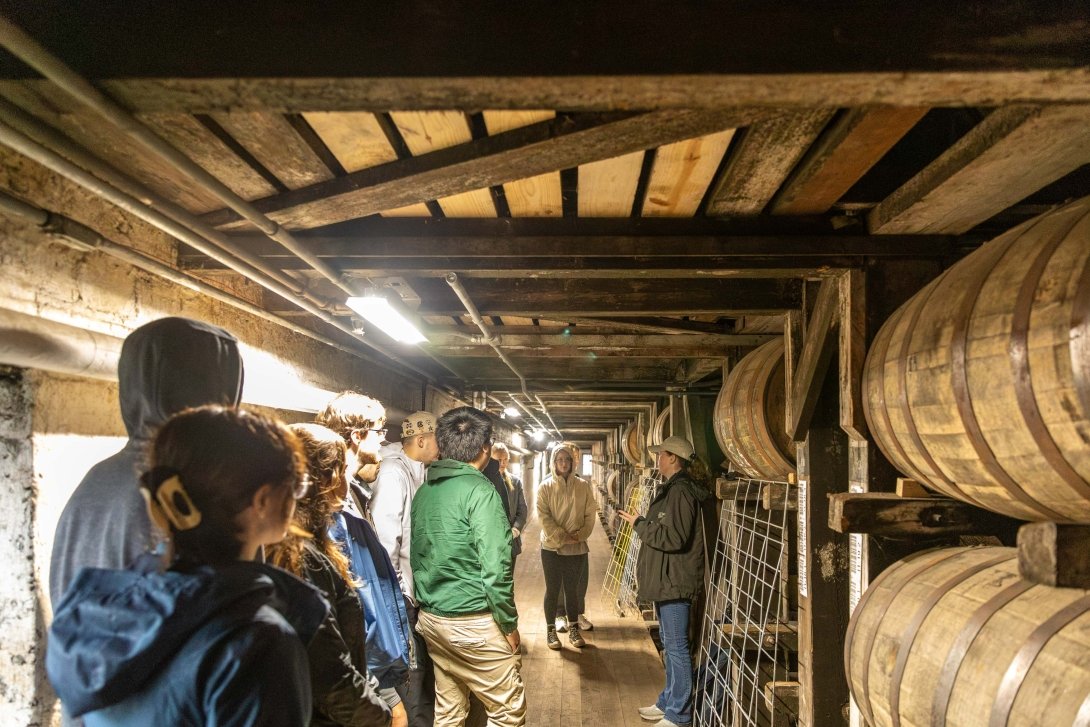
Here’s a fun exercise: open a new browser window on your computer and search the phrase “What’s the best way to drink bourbon?”
This is a good way to lose hours of your day. The answers are unending — seemingly as vast as the internet itself.
And the consensus? Well, there isn’t one.
Some folks will tell you it’s a sin to add anything to fine Kentucky bourbon. Others say an ice cube or two transforms the bourbon as it cools and the ice melts. Others say a splash of water is required to “wake up” slumbering flavors.
And that’s before we venture into cocktails, mixers, sugar, herbs, bitters, fruit and all the rest.
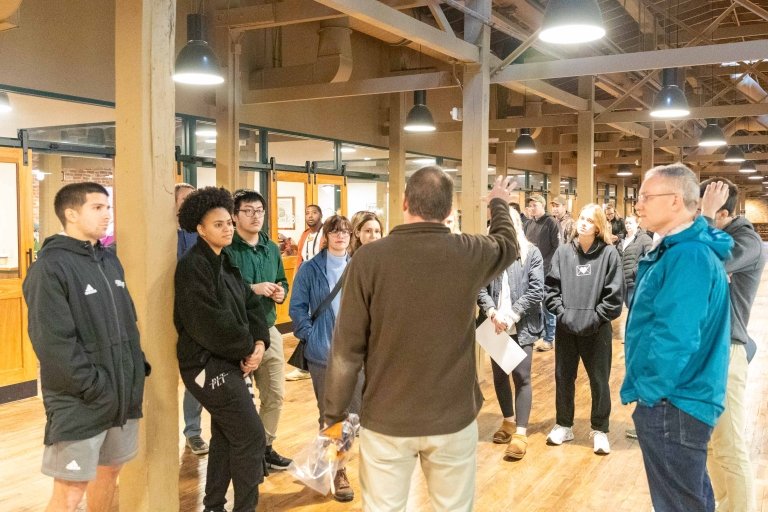
So, is it just a matter of taste and preference? Isn’t there anything concrete we can rely on to point us in the right direction?
Enter Leonard Demoranville, associate professor of chemistry. He and his students have been using the technology available to them in Centre’s laboratories to get a definitive answer to some of these questions.
That research was spurred by some theoretical work using simulations to analyze the flavorful elements of bourbon.
“I came across a paper where they looked at these smoky molecules called guaiacol and they did it all computationally,” he said. “And I’m thinking, ‘We have a tool sitting in there that I can use to actually make these measurements and see the findings.’”
The research centers on how proof may affect the flavor of bourbon — specifically, how the ratio of ethanol to water causes different amounts of guaiacol molecules, and how that affects the smoky aromas found in the gas above the whiskey.
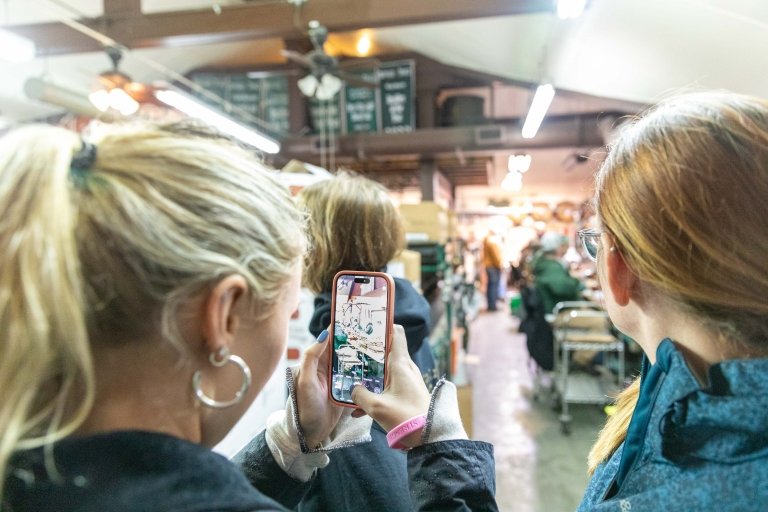
So basically, how a splash of water affects the distinctive smoky, woody, vanilla flavors we experience via our sense of smell as a sip of bourbon crosses our lips.
“We’re really talking about flavor, not taste. And it turns out that most of your flavor sensation is happening through your nasal passages,” Demoranville said. “So the guaiacol molecules have to get into your nose. That's why when you sample the bourbon, you swish it around in your mouth for a while or you ‘chew’ it a little. You're trying to get those things into your nose.”
Demoranville is presenting the research findings at a symposium at the biennial Conference for Chemical Education, which is being hosted at the University of Kentucky in July.
In the future, he hopes to expand the research to look at other flavor compounds such as esters, which have a fruity profile.
Demoranville also teaches a popular CentreTerm class, The Chemistry of Beer, Wine and Bourbon, which delves into the science behind some of our country’s favorite beverages. It stemmed from his home brewing hobby which started before he moved to Kentucky and joined the Centre faculty in 2012.
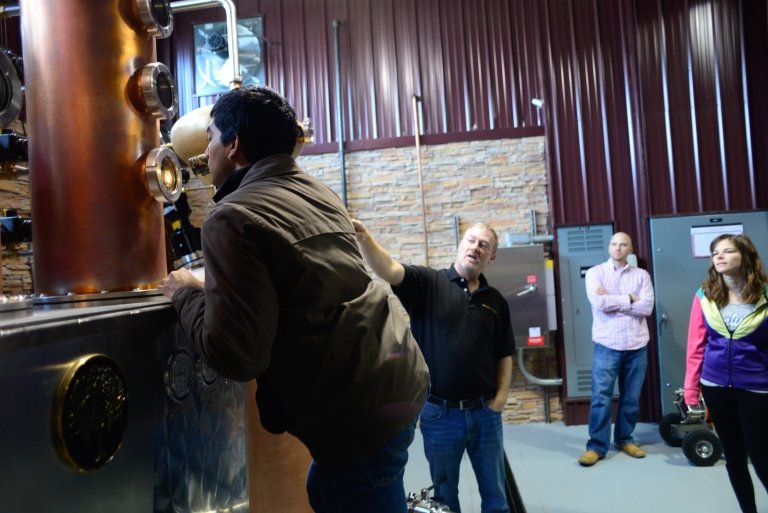
How bourbon earned a spot in the lesson plan is a very Kentucky story.
“In my interview, they asked which upper-level chemistry elective I would like to teach. I said, ‘the Chemistry of Beer and Wine.’ The person sitting across the table looked at me and said, ‘That won’t work here.’”
Demoranville’s mind began to race as he wondered if he had committed a faux pas that might end his Centre career before it even began.
Then the interviewer let him off the hook.
“All these things flashed through my mind then she said, ‘You’re in bourbon country. You have to have bourbon included,’” he laughed. “Yes. I can do that.”
Centre’s location in the heart of Kentucky’s bourbon region has been an asset to Demoranville’s work. Pat Heist, co-founder of Danville’s Wilderness Trail Distillery, is a biochemist and has given students in the class a unique behind-the-scenes tour of the facility. Demoranville and Heist co-authored a 2021 paper published by the American Institute of Chemical Engineers titled “The Chemistry of Bourbon.”
Additionally, former Centre chemistry professor John M. Medley now serves as technical services director for distilling giant Sazerac, owner of Buffalo Trace Distillery. That connection has allowed Demoranville’s students to see the on-site laboratories that aren’t open to the public.
“The bourbon industry is really a wonderful community” Demoranville said. “They are really welcoming while also being in competition with one another.”
Breaking through the science to everyday application, how much water should you add to your bourbon? It’s a bit of a sliding scale depending on how strong you want the smoky flavors to be and how strong your whiskey is.
“The more ethanol you have, the less guaiacol comes out,” he said. “So the more water you have, the more of that smoky flavor.”
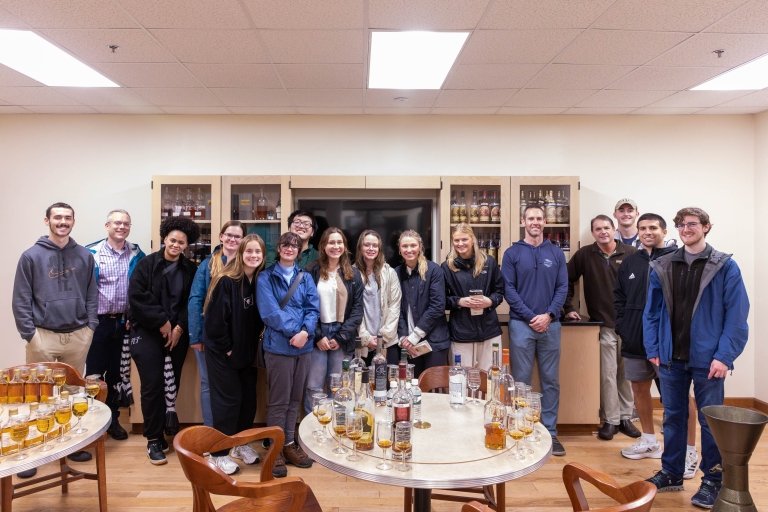
Adding a splash of water will change the way your bourbon tastes, which would make it more or less appealing, based on how much you like the flavors being enhanced.
So we learn again, there is no single, correct answer for how you should take your bourbon.
“I would say it’s a matter of perspective,” Demoranville said. “You might really enjoy it one way, and I might really enjoy it another. There’s a judgment call there.”
So after all this research and networking, which bourbon is Demoranville’s favorite?
“The one that’s in front of me.”



